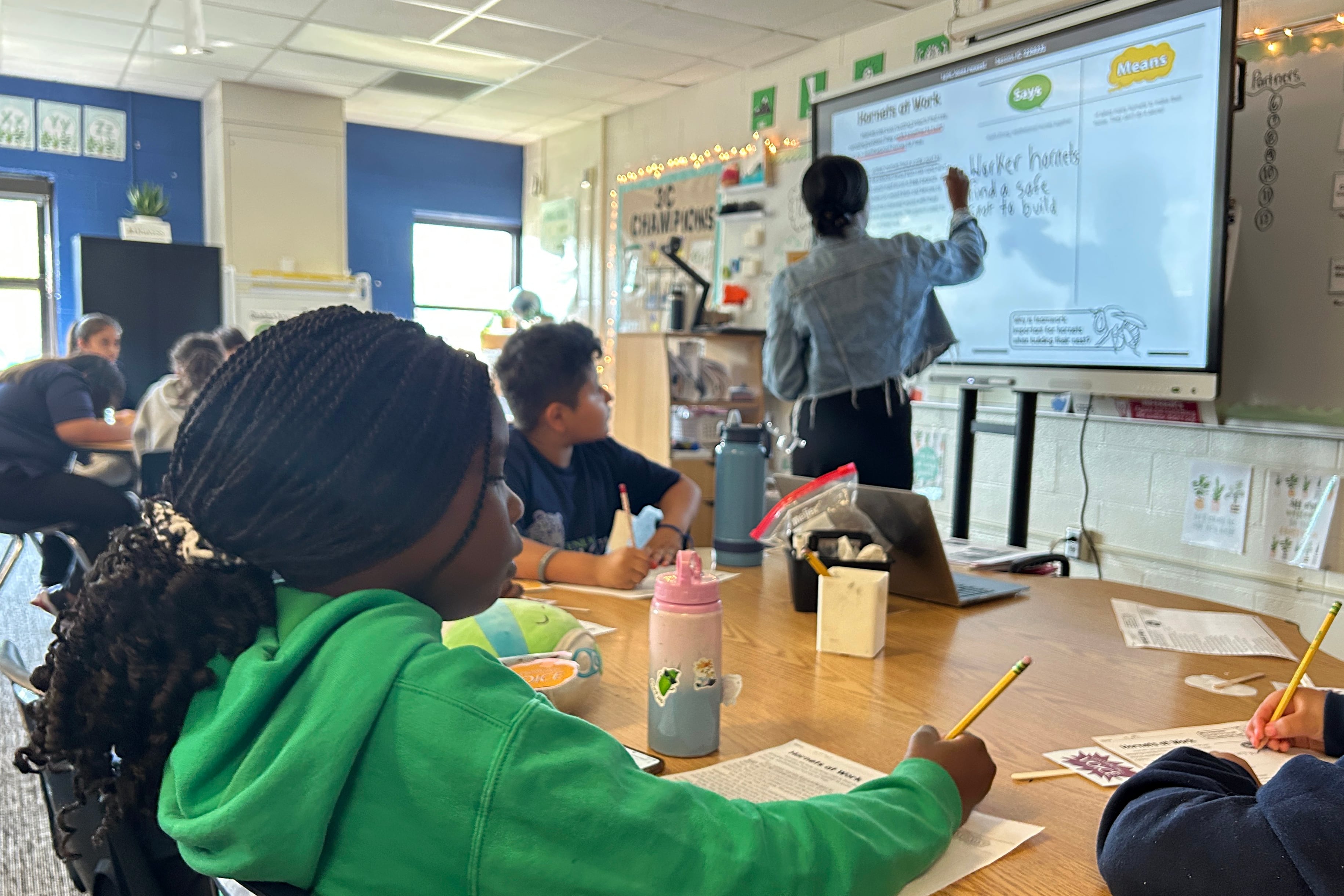Sign up for Chalkbeat Indiana’s free daily newsletter to keep up with Indianapolis Public Schools, Marion County’s township districts, and statewide education news.
Roughly 3,000 Hoosier students are repeating third grade this school year, due to the state’s retention law.
This is the first school year students were held back under the 2024 law that mandates retention for students who don’t pass the state’s reading test, the IREAD-3.
The law sought to address the growing number of students who were promoted to fourth grade without passing the test, which is an indicator of the early literacy skills tied to success in later grades. It has exemptions for certain students such as those with disabilities or those who are learning English, and gives students multiple chances to pass the test, including twice in the summer after third grade.
The state’s department of education presented data on IREAD pass rates and retention to the State Board of Education on Wednesday, revealing the total number of students who were held back for the first time.
“We will be watching those students very closely,” State Secretary of Education Katie Jenner said of the students held back, “to ensure they are readers following this year.”
Statewide, over 84,000 students were tested, and 10,663 didn’t pass the IREAD by the end of third grade. Of those, 6,950 received a good cause exemption to go to fourth grade anyway, 3,040 were held back, and roughly 673 students either left the state or are now homeschooled, per the state’s presentation.
A state dashboard with this data for traditional public schools, charter schools, and private schools is available online.
The number of students held back is lower than estimates during the 2023 legislative session, which said more than 7,000 students could be retained in third grade due to the law, Jenner pointed out to the board. She previously said that she didn’t believe many students would be held back.
The smaller-than-first-estimated retention numbers also follow an increase in IREAD scores last school year where 87.3% of students passed the test, an improvement of 5 percentage points from the previous year.
Anna Shults, chief academic officer for the department of education, credited the impact of statewide literacy efforts and policies to support reading, such as giving students multiple chances to pass IREAD, summer school, and more. She also noted that literacy is a key part of the state’s proposed accountability model for schools.
“We are now ensuring that students that are promoted onto grade four are doing so with an ability to read and show mastery of key foundational reading skills,” Shults said.
Students who didn’t pass IREAD can still go to fourth grade
The state has multiple ways for a student who didn’t pass IREAD to qualify for a “good cause exemption” and be deemed that it’s in their best interest to go to fourth grade.
Those are if a student is in special education, if they are an English learner with less than two years of services, if they were previously held back in third grade or more than once before that, and if they are proficient or above in math on the ILEARN.
Schools have the laws and policies to hold students back, but the exemptions allow conversations on the local level about individual students, Shults said.
This school year, of the students who went to fourth grade with an exemption, nearly 75% were students in special education and nearly 24% were English learners. The remaining roughly 1% were either proficient in math or previously held back.
Indiana will continue literacy support going forward
For students who don’t pass the IREAD, Shults said the state’s focus will be on interventions for those students and what is happening day-to-day for them in school.
And she said the state will continue to make sure educators have what they need to improve literacy rates overall by looking at schools’ reading plans and providing teacher training, literacy resources, testing checkpoints, and supports like tutoring and summer programs.
The state board also heard a report on summer learning labs from Brandon Brown, CEO of The Mind Trust. This summer was the fifth year for the program that does English and math education, and it served roughly 12,000 students in 144 locations across the state.
Students take an assessment at the beginning and the end of the five-week program, and Brown said data showed gains across the board for all students.
He added that research also showed gains on state tests following the summer program, and the largest gains were for students who also did tutoring through Indiana Learns in addition to the summer learning labs.
Next, he said, the Mind Trust is looking at ways to replicate the program during other breaks from school in the fall, winter, and spring.
Update: This story was updated on Nov. 6 to include a link to the state dashboard.
Chalkbeat Indiana reporter Aleksandra Appleton contributed to this story.
MJ Slaby oversees Chalkbeat Indiana’s coverage as bureau chief. Contact MJ at mslaby@chalkbeat.org.





